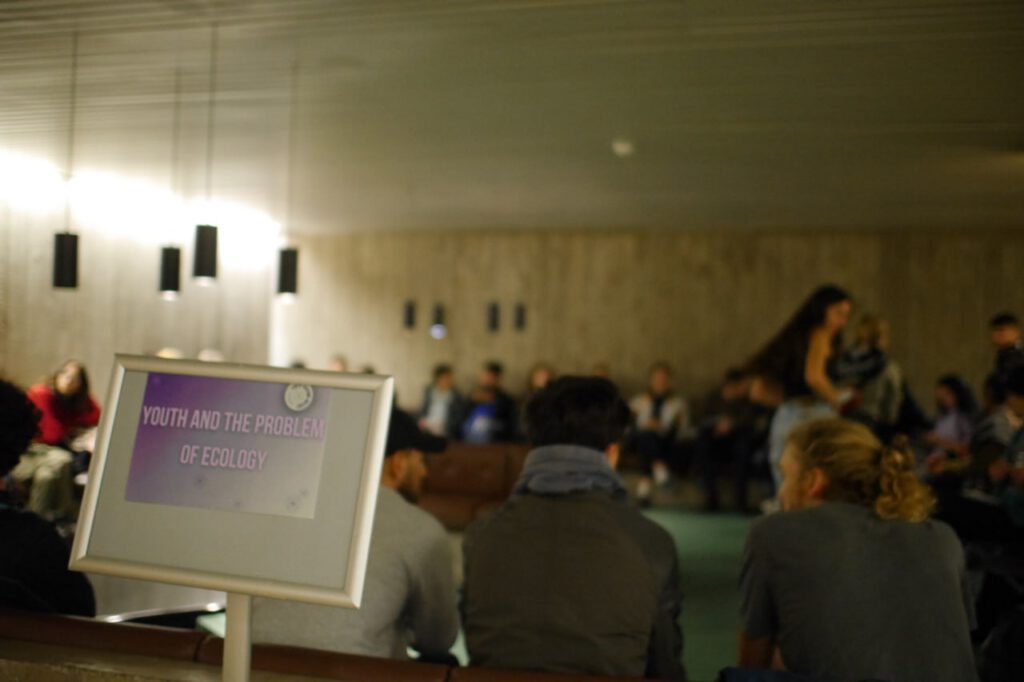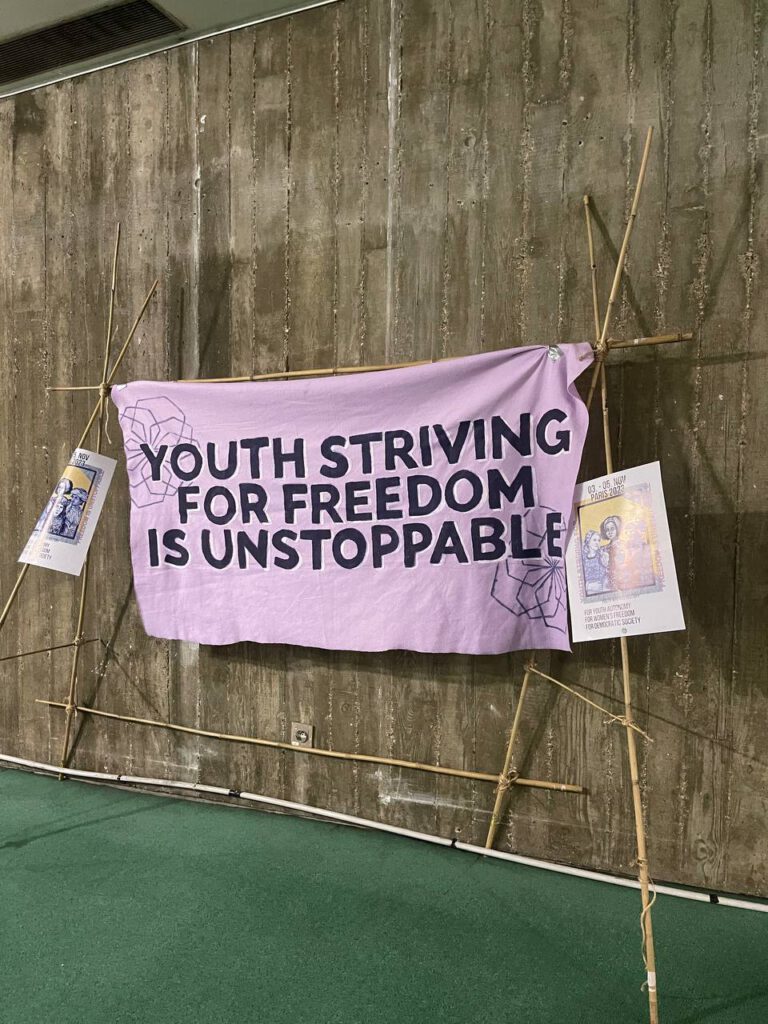“The capitalist system tells us that there is no solution to the ecological crisis.” We have to question our consumerist mentalities and lifestyle. We have to introduce a new way of life like the first nation”

The Workshop “Youth and the Problem of Ecology” gave an introduction into the role of youth in the struggle for ecology.
Juan Pablo, a delegate of his people in Yukba (a region within the columbian state), currently lives in exile in Paris. He wants to decentralise the discourse of the climate crisis and put an emphasize on the colonial, capitalistic roots of this crisis. He asked us to seriously reflect if the world would be alarmed by climate catastrophe if it would only affect Africa, Abya Yala, and in general the Global South. If it would alarm us, if Europeans wouldn’t have to face the threats of the ecological crisis.
He critisised the western narrative of climate change, because of its ignorance towards the colonalist exploitation as a driving force behind ecological destruction and the source of europes wealth. He states that the climate crisis is a result of the colonial exploitation of land and life, and the enslavement of people by the capitalist system as workers. He warns us to not fall into the trap to reduce the climate crisis to a discourse around CO2 emission.
“We can only start the revolution if we understand the five thousand years old colonial background of the ecological crisis.”
He fights for a global revolution.
“Revolution does not know borders. The time is now.”
Esther fights with Nantes en Commun against the exploitation of resources in France. She talked about the disconnect the youth in cities have from nature, stressed that despite our seperation, we need to care about land grabbing in the Global South. And that we have to organise ourselves, we should have learned from the history of our climate movements, that simply asking goverments to do something will not work.
Merlan spoke for PEPS (Pour une Ecologie Populaire et Sociale) a collective developing social ecology in France based on the ideology of Bookchin and Öcalan. Merlan: “We can not seperate the social and ecological crisis. They are results of capitalist war”
During the discussion people from different areas of the world described their struggle: two people from the indigenous movement in Brazil told us that colonialism still exists in Brazil as a murderous system, for example through the agricultural industry, and how they are fighting against it.
“Our resistance comes from our ancestors.
Our heritage is endless. Our resistance will never stop.”
They empasized that an anticolonial perspective on the climate crisis is necessary. “When the europeans stole our land the climate crisis started. They destroyed the forest and rivers, stole our land and lives.”
Furthermore, they made us a promise in their native language that we would all continue fighting: “we are 4% of the population in Brazil but protect 90% of the biodiversity in Brazil, so we are the solution. We protect our territory like our life”

A friend from the Kurdish youth movement recommended to read about the analysis of Öcalan regarding the natural life/society. He connected the exploitation of nature and violence against women wich are both based on the opressive mentality of men.
Juan Pablo:
“Activism for people in the global south is not a hobby. It is a question of life or death.”
A comrade from Mali, concluded:
“As youth we want to transform life and our perspective on nature. We are not actors against the destruction of nature. We are the nature and we are defending ourself.” “Until now we have been letting the state decide our life. It’s time to stand up now.”
